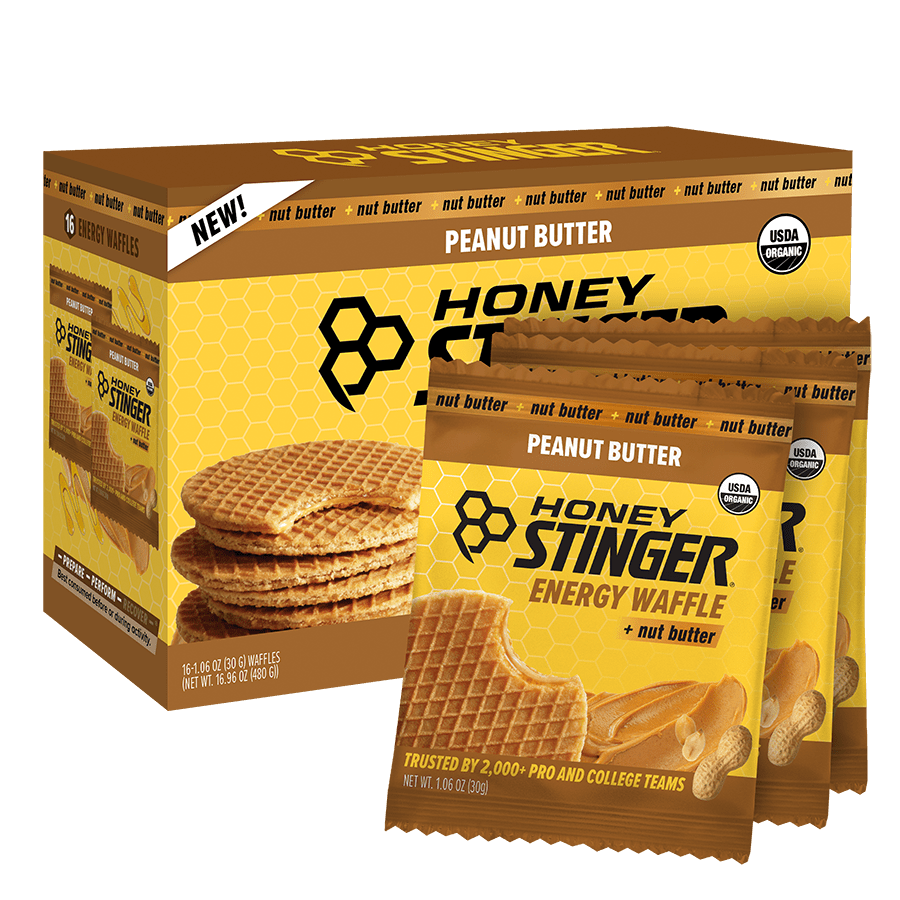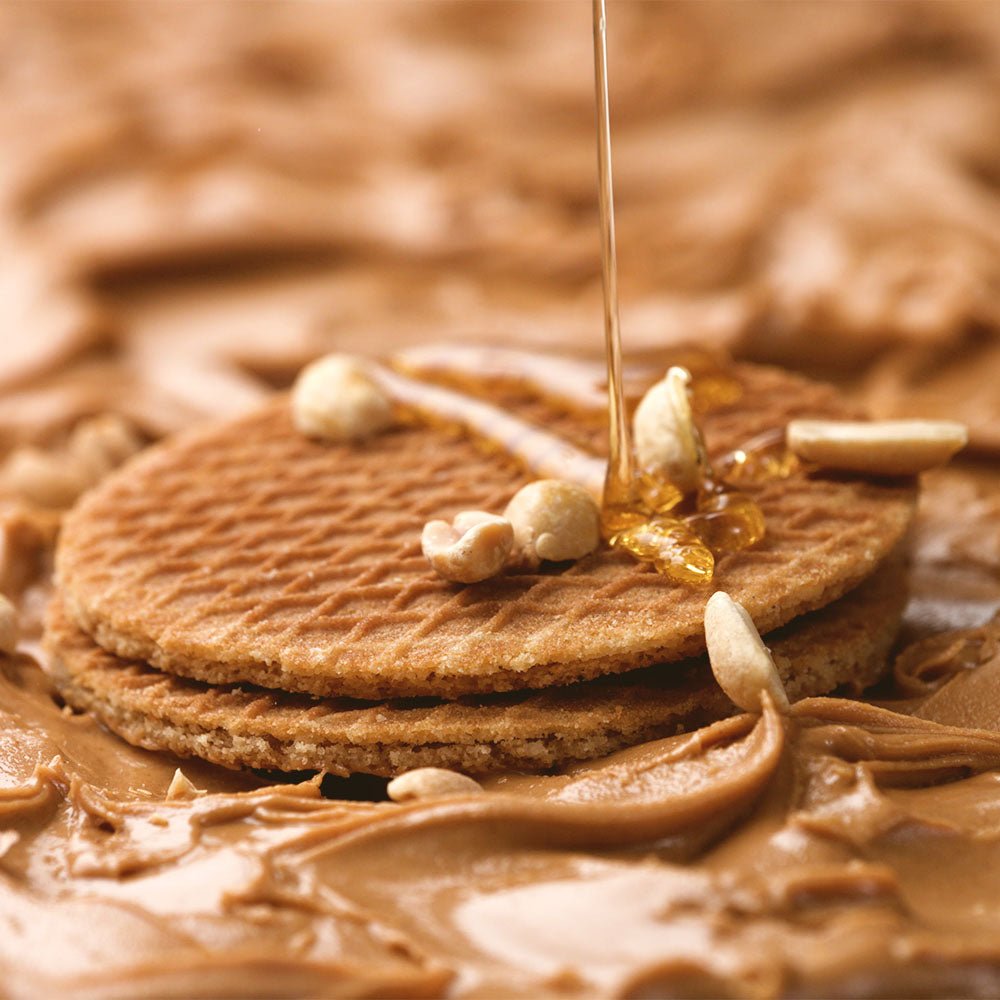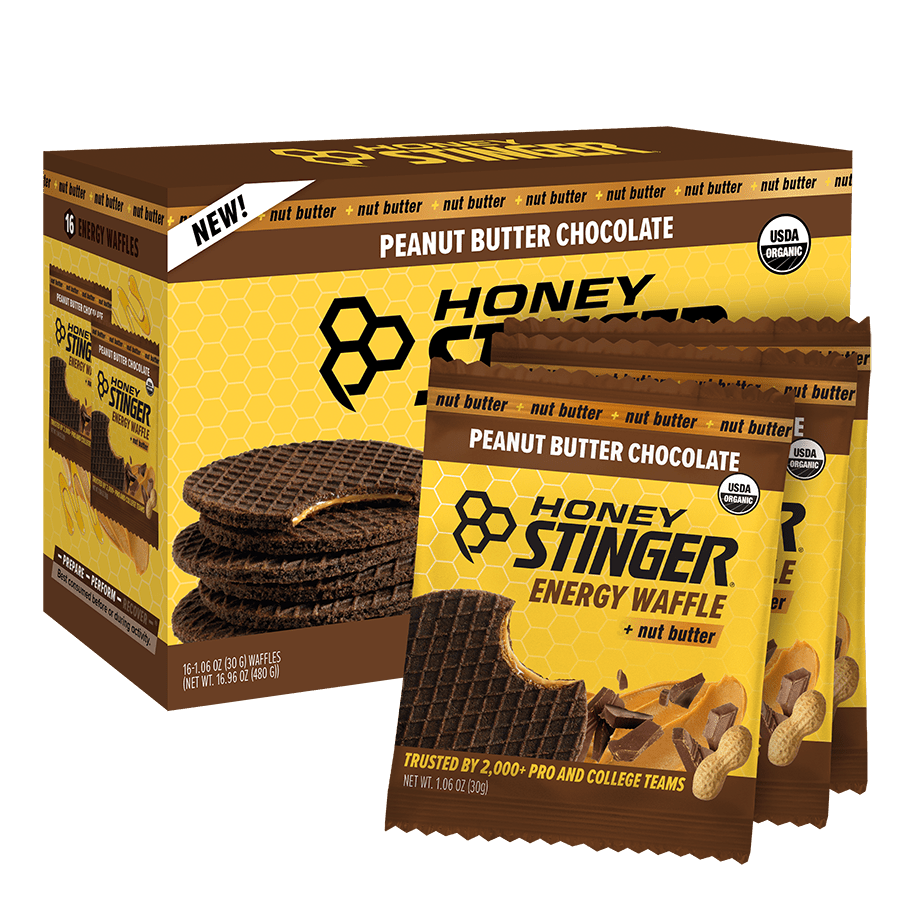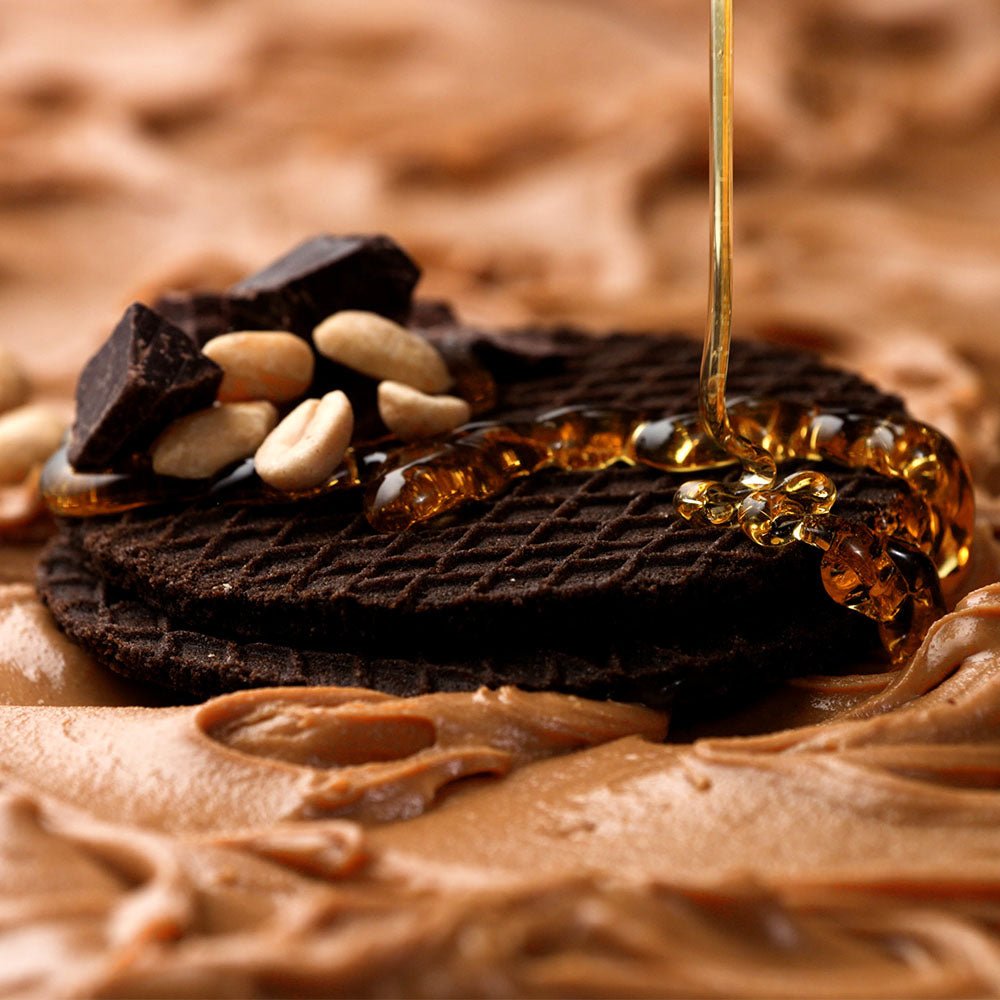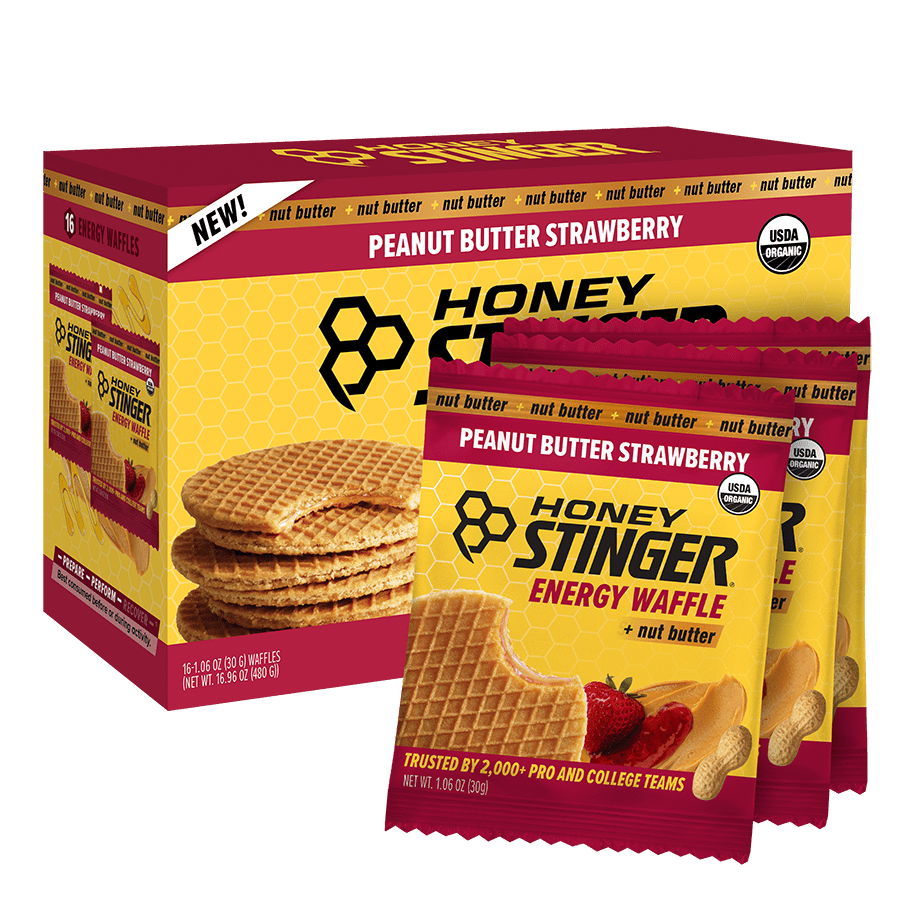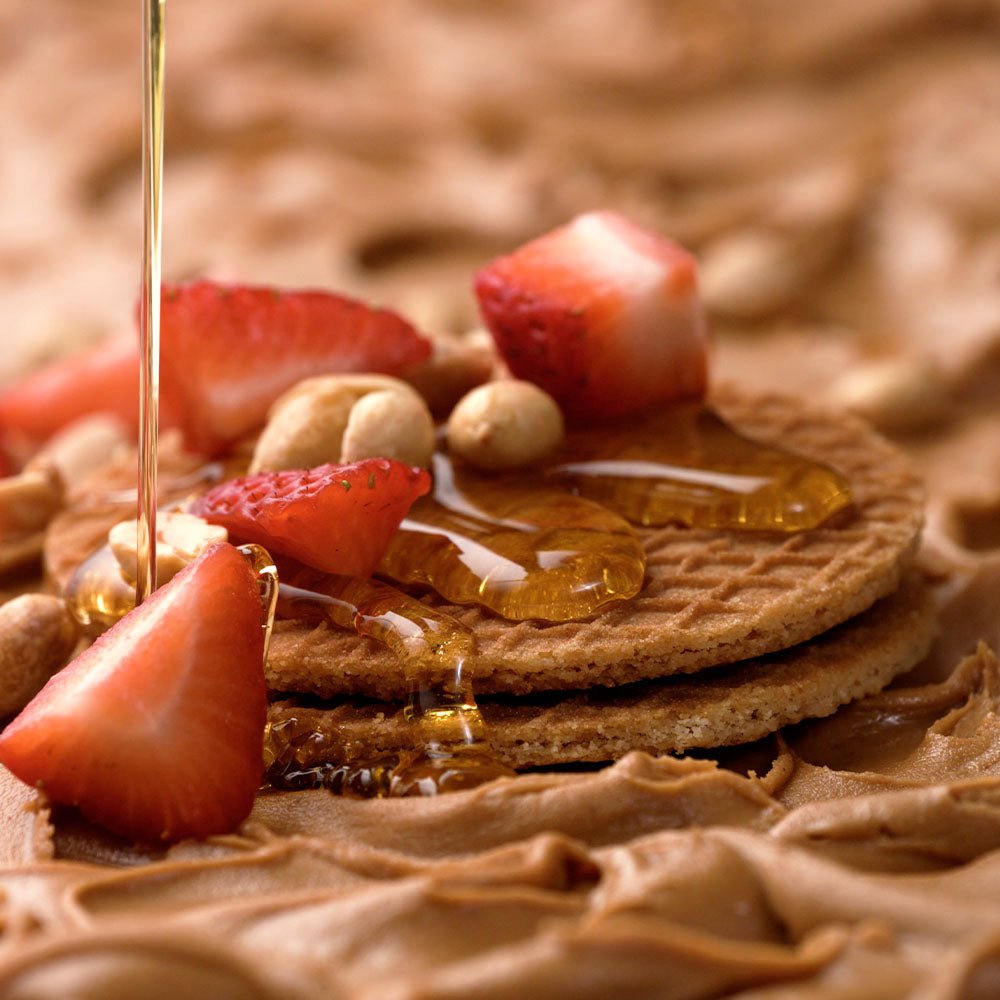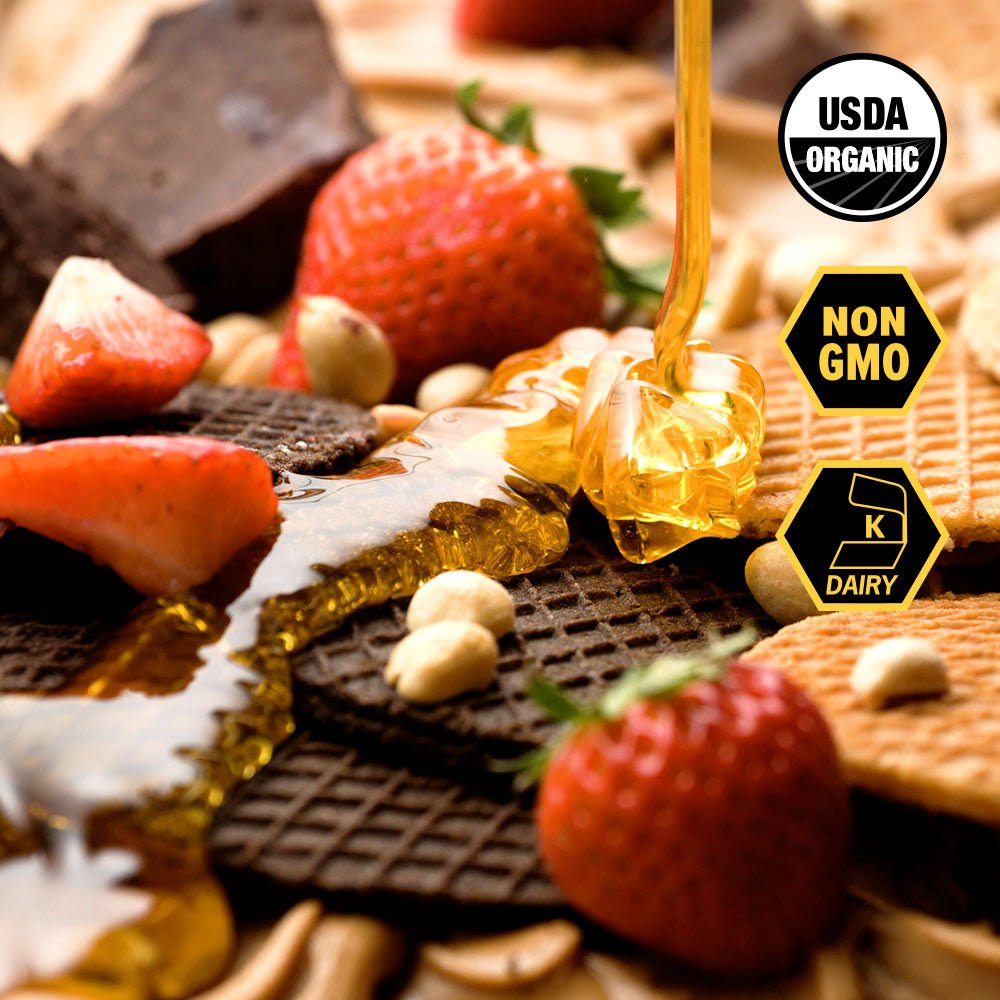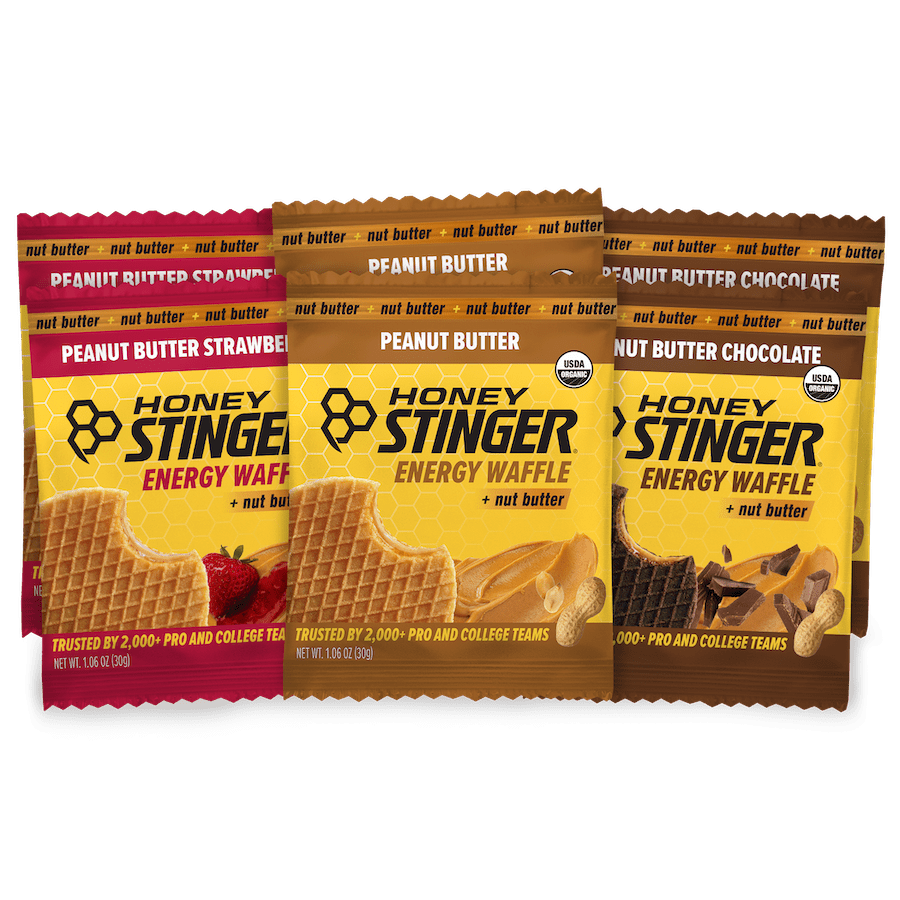National Honey Month: Q&A With Outlaw Apiaries

September marks the end of beekeeping season when most beekeepers are harvesting, extracting, and bottling honey. It’s the month we get to celebrate bees for making nature’s best sweetener, pollinating crops, and maintaining ecosystems. In the US, honeybees play a significant role in agricultural systems—pollinating roughly 80% of cultivated crops and one in three bites of the food we eat. For National Honey Month, we acknowledge the power of these hardworking insects and the essential role beekeepers play both ecologically and commercially.
Over the past year, Honey Stinger has been working with Outlaw Apiaries based in Hayden, Colorado to help us with our beehives. Outlaw Apiaries founders and owners Perry Baker and Bethany Karulak-Baker are the real deal. They’re living the beekeeping lifestyle, educating youth and adults daily, and selling their delicious raw honey from their home, local farmers markets, and gift shops.
Outlaw Apiaries has over 500 migratory beehives that travel to California each fall and return to Colorado each spring. These hives are treated well within guidelines administered by the USDA. The Bakers’ nonprofit Bee the Future has 100 non-migratory hives that live at the Baker Ranch year-round. These hives receive minimal to no intervention depending on the climate and annual precipitation. When these hives grow strong enough, the Bakers can split the hives and add a new queen. Those new hives become the nucs, or small nucleus colonies, the Bakers sell to local beekeepers including Honey Stinger.

HS: Bethany, you’re part of our Hive. Before you were a beekeeper, you were a competitive athlete. Can you share some of your past athletic pursuits with us?
BKB: I began my athletic career at age four as a competitive swimmer. I won every race. My legs were so strong it felt like I was cheating. I had this gift: I got in the water, flew through the race, and won. I was poised to compete in the Olympics, but due to family issues I had to care for my sick mother and couldn’t continue training. My Olympic dreams were over.
I swam at club, high school, and college levels. I raced the Northern Hudson River Race placing 1st and Alcatraz placing 3rd. I’ve swum along the coasts of Brazil and Chile, in the North Sea off Germany, throughout the Caribbean and Southeast Pacific, and all over the Pacific and Atlantic in the continental US.
I joined the Texas Army National Guard based out of Fredericksburg, TX and subsequently joined the US Air Force as an officer while pursuing my Masters in Sport Psychology at the University of Texas.
After moving to Colorado, I pursued snowboarding, Brazilian Jiu Jitsu (BJJ), and Muay Thai Boxing (MTB). I competed in BJJ and MTB for five years and won several competitions across the country. I began racing snowboard cross (SBX) and won 2nd and 3rd at USA Snowboard and Freeski Association Nationals. At an event, I met a few members of the Brazilian Olympic SBX Team who said they needed a US coach. I was in the right place at the right time, and I was hired.
Competition is at the core of who I am. I’ve always been competitive. This doesn’t mean I compete with those around me. I compete with myself to see what I can accomplish. As a mother of a two, four, and six-year-old, I compete with how many books we read and how improved our behaviors and habits are. We always try to do better than the day before.
HS: What do you love about bees?
BKB: Easy. Bees aren’t humans. Quitting life coaching and sport psychology consulting to dedicate my time to beekeeping was a no-brainer. Bees are a blessing. Sure, they sting occasionally, but they give me energy and happiness. They don’t complain, they’re flexible, and they provide me with quiet time plus a wildly intense workout.

HS: What are some benefits and challenges of beekeeping in northwest Colorado?
OA: Northwest Colorado is considered a high mountain desert and the landscape is inherently dry. The 20-year drought has made it difficult for bees to maintain a healthy diet since flowers don’t bloom and give off pollen or nectar as long. This year, the historic monsoon flows have been so important in carrying the blooming plants longer, providing the bees a balanced forage option through spring and summer. This precipitation has helped maintain overall colony health and provides beekeepers with an abundance of honey.
Because of our high elevation, bees produce some of the best golden honey in the country. Predominately an alfalfa clover mix, the honey is golden and sweet as opposed to a darker, nutty flavored alfalfa honey found at lower elevations across the state. Our honey is much thicker than most, with an average moisture percentage of about 13.5%.

HS: What are the most important messages we need to know about bees, our environment, our food, and our health? What actions can we take for a better future?
OA: Without bees, it’s estimated the human race would perish in as little as three years. Bees pollinate about 2/3 of the foods we eat. Honey is an excellent source of energy and a much better option than refined cane or beet sugar. It’s used as an antibacterial healer and a skin conditioner. All parts of the honey processing are useable including honey, wax rendered for various applications, and propolis harvested for antibacterial salves and probiotic health. Let’s not forget the Royal Jelly some people consume for boosted nutrient support.
The biggest action to protect pollinators is lobbying against pesticide and herbicide usage on the commercial scale. Namely, the Roundup Ready crops and Neonicotinoids. These are widely used chemicals approved in the US. Neonicotinoids are pesticides implicated in the decline of bees and are known to have sublethal effects on bees' foraging and colony performance. One proposed mechanism for these negative effects is impairment of bees' ability to learn floral
associations. Pesticides are absorbed by plants and can be present in pollen and nectar, making them toxic to bees.
Another challenge we face is the monoculture practice of farming and the removal of natural forage plowed for corporate farming. This leaves bees with only one food source for a short period of time in a year. It drastically affects their nutritional balance, creating nutritional deficiencies which lead to viruses and diseases.
There are many good programs in place to replant and vegetate large orchards, highway right of ways, etc. back into pollinator friendly plants to help offer diverse forage options through the blooming season. Lobbying for further action regarding the restoration of natural habitat is critical in helping future pollinators.

HS: What’s the mission of your nonprofit Bee the Future?
OA: Bee the Future empowers Yampa Valley youth by teaching the skills necessary to become beekeepers as well as educating our youth about saving the honeybee population and protecting all pollinators. We provide year-round honeybee enrichment programs both at our home indoor apiary in addition to classroom instruction with our traveling beehive. Through donations and local swarm rescues, our students can have their own beehives to care for throughout the year. Bee the Future also provides an annual scholarship to any student participating in our program who desires to pursue a degree in agriculture.

HS: What’s your advice for new beekeepers?
OA: Start with two hives so you can compare health and strength. You can always equalize a weaker colony using brood and honey from a stronger one. Beekeeping is a balancing act between science and art. There’s so much to learn that it seems daunting. Pair up with an experienced beekeeper who can show you some basics. Join a local club, read articles, and watch YouTube videos.
FAST FACTS
- How many bees do you have? ~30 million
- How much land do your bees use? ~ 25,000 acres (3-5 miles in every direction as the crow flies)
- What’s the survival rate of bees in NW CO? 85-90% if cared for properly
- How much honey does a bee produce? A bee produces one and a half teaspoon of honey in its lifetime. Bees touch a million flowers to make a pound of honey.
- What are bees’ superpowers? Pollination, stinging, ultraviolet vision, and naturally swarming to spread genetics and ensure the species evolves and survives.
- What are honey’s superpowers? Honey contains a mix of amino acids, vitamins, minerals, iron, zinc, and antioxidants. In addition to its use as a natural sweetener, honey is used as an anti-inflammatory, antioxidant, and antibacterial agent. People commonly use honey orally to treat coughs and topically to treat burns and promote wound healing. Research suggests that honey is helpful with cardiovascular disease, cough, gastrointestinal disease, neurological disease, and assists with wound care (don’t forget to apply a little honey to your pooch’s wound post-op). Honey also provides a variety of skincare benefits



